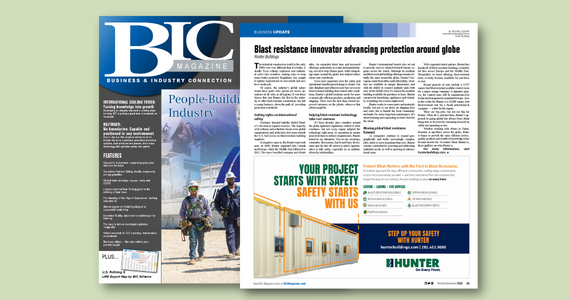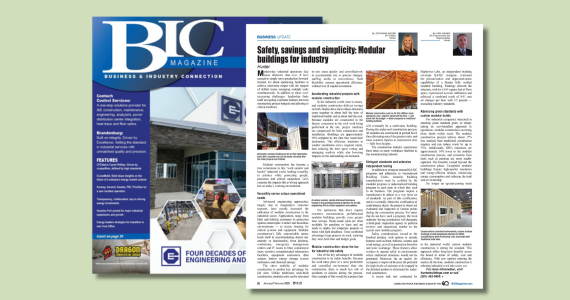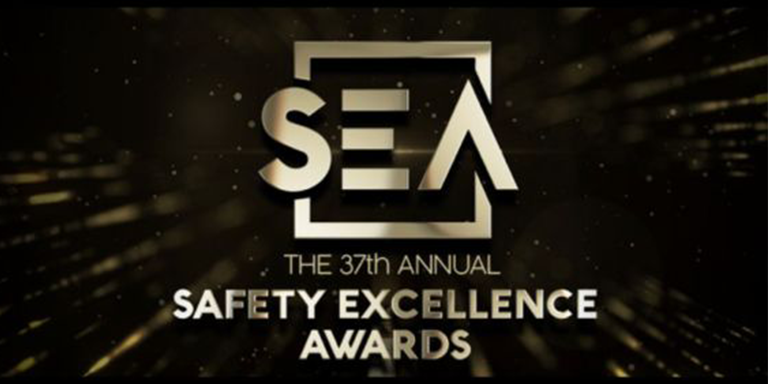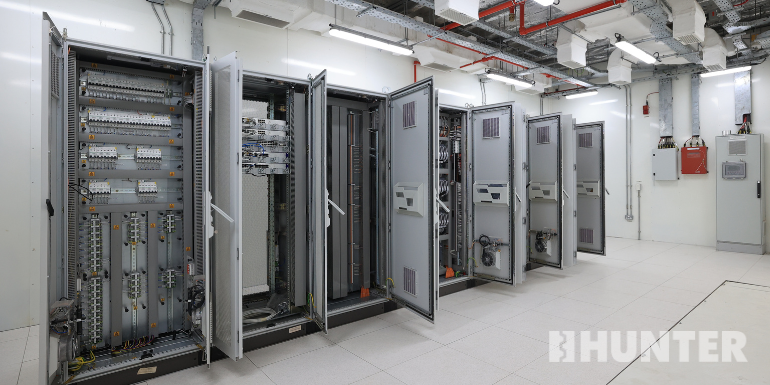Blast resistance offers crucial benefits for industrial operations worldwide. Not only do fortified buildings help keep people and equipment better protected, but they safeguard systems, keep communications in working order and help ensure efficient, effective operations.
In a recent feature article in BIC Magazine, Hunter International Managing Partner Michael Leblanc not only highlighted the importance of blast resistance, but described Hunter’s role in helping the technology take root on the global front. Read the full article text below.
Blast Resistance Innovator Advancing Protection Around Globe
The industrial construction world in the early 2000s was very different than it is today.
A deadly Texas refinery explosion sent industrial crews into overdrive, seeking ways to keep teams better protected. Regulators, too, sought to tighten requirements to ease minds and save lives on the job.
Of course, the industry’s global nature meant these goals were spread out across operations of all sorts, in all regions. It was those factors that sent Hunter, the first in the industry to offer blast-resistant construction, but still a young business, down the path of providing protection worldwide.
Setting sights on international safety
Customer demand initially fueled Hunter’s decision to expand overseas. The majority of its refinery and industrial clients were global organizations and, at the time, few areas outside the U.S. had access to blast-resistant building suppliers.
As inquiries came in, the Hunter team took note. In 2009, Hunter expanded into Canada and Europe, while the Middle East followed in 2012. The move benefited company and clients alike. An expanded client base and increased offerings, particularly in rental and manufacturing, served to help Hunter grow, while integrating teams around the globe also helped reduce client costs worldwide.
Even more important were the safety and operational benefits passed along to clients. Not only did plants and refineries now have access to blast-resistant buildings that created safer conditions, Hunter’s global locations made for more economically efficient products, production and shipping. These were the first steps toward improved outcomes on the jobsite, wherever that jobsite might be.
Helping blast-resistant technology take root overseas
It’s been decades since countries around the globe tightened regulations related to blast resistance, but not every region adopted the technology right away. As operations in certain areas took time to enforce requirements, Hunter honed in on education. One-on-one meetings, committee discussions, lunch-and-learn discussions and the like all served as prime opportunities to talk safety, especially in an industry driven by relationships.
Hunter’s international branch also set out to provide services tailored toward various regions across the world. Although its modular and blast-resistant building offerings remain virtually the same around the globe, Hunter’s European rental fleet offers added flexibility. Modules are available in unique dimensions, and with the ability to connect multiple units with ease. In the Middle East, it’s not just the modular building available for purchase or lease. Hunter can provide furnishings, appliances and virtually everything else a room might need.
Hunter works to source parts and materials locally, not just to cut down on shipping time and costs, but to benefit the local community and make for easier long-term maintenance. It’s about listening and responding to what’s best for the client.
Moving global blast resistance forward
As companies continue to expand geographically and tackle increasingly complex jobs, safety is more important than ever. Hunter remains committed to assessing and addressing industrial needs, as well as growing its international team.
With expanded rental options, Hunter has hundreds of blast-resistant buildings available for hire across Europe and the Middle East. Meanwhile, its latest offering, blast-resistant tents, recently became available for purchase or rent.
Recent projects of note include a 4,737 square foot blast-resistant modular control room for a major energy company. A signature project, the control room will be manufactured in Dubai and transported to mainland Europe. Also in the works for Hunter is a 35,000 square foot blast-resistant tent for a Saudi petrochemical company – a first for the region.
These are big jobs, but not too big for Hunter. When all is said and done, Hunter’s approach to going global has always been about being true to its roots by remaining focused on safety and operating as one.
Whether working with clients in Dubai, Houston or anywhere across the globe, Hunter hopes to provide the same efficient service, quality products and wealth of knowledge it has become known for. No matter where Hunter is, these qualities are who Hunter is.



